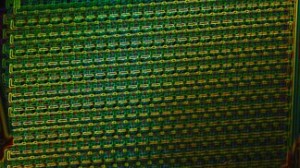A team of chemists from the University of Montreal have developed a DNA-based electrochemical diagnostic test that is inexpensive and can provide results in just a few minutes. This development has the potential to lead to point-of-care medical devices that can provide results for diagnoses ranging from cancer to autoimmune diseases in just minutes.
Not only is this development exciting for the advancement of the scientific community, it also has the potential to impact global health due to the low cost and ease of use of the test. The new development could help cut lag time and expenses between diagnosis and treatment for both communicable and non-communicable diseases on a global level.
Molecular Diagnostics at Home
“Despite the power of current diagnostic tests, a significant limitation is that they still require complex laboratory procedures. Patients typically must wait for days or even weeks to receive the results of their blood tests,” Alex Vallée-Bélisle said, head of the research team.
At the core of the DNA-based device is one of the simplest forces in chemistry: steric effects. Essentially, the new development focuses on the phenomenon of atoms getting too close to one another and using force to push off each other. This reaction allows researchers to detect a wide array of protein markers.


